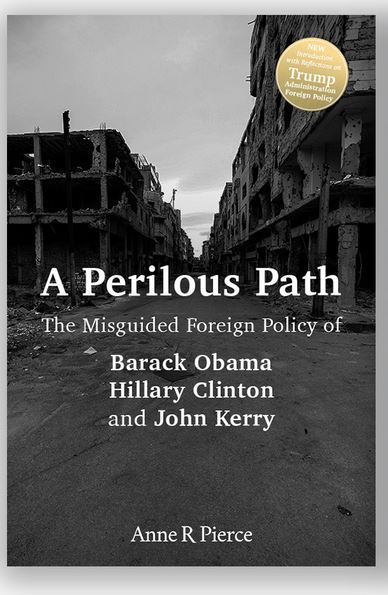How many moral and strategic setbacks must America endure to see that unless free people are vigorous in defense of the ideals and security of democracy, forces of oppression and domination grow? With World War II and the conquests and horrors of fascist Germany and Japan, we learned this lesson the hard way … for a time. When the Cold War ended, largely because the United States prioritized alliances and deterrence, contained and pressured the Soviet Union, and upheld an appealing democratic alternative, many believed it would be the last time such military might or Free World ardor would be needed. They unlearned the lesson of the post-World War II order.
Since the end of the Cold War, U.S. administrations have continuously reinvented American foreign policy as if the power and influence we’d achieved, and the global pull of our democratic example, weren’t worth preserving. True, there are new challenges of terrorism, WMD proliferation, Chinese and Russian expansionism, and adversaries’ use of terror sponsorship, paramilitary groups, disinformation, and cyberwar. But, for that very reason, American foreign policy must rediscover moral and strategic resolve. Instead, there has been an untethered, experimental quality to our world posture, with defense priorities changing with each presidency, concern for human rights wavering, and relations with allies and treaties in flux.
With Afghanistan an egregious example, America too often squanders hard-fought gains, exhibits moral relativism, and appeases enemies while undermining friends. Barely consulting NATO while “coordinating” with the brutal Taliban, the United States withdrew forces without securing weapons and intelligence, or evacuating all imperiled U.S. citizens and Afghan allies. U.S. troops’ limited presence achieved outsize good. When their withdrawal resulted in chaos and horrors, the U.S. sent troops back — to a vulnerable, surrounded position — then withdrew again, still without completing the evacuation. America thereby left our own behind, condemned Afghan women and civilians to a terrible fate, relinquished counterterrorism surveillance, ceded influence to Russia, China, and Iran, and destroyed trust.
We must rethink retrenchment that is designed to avoid “endless war” yet only emboldens aggressors and terrorists, who in turn escalate hostilities and atrocities. We should “never again” legitimize or empower genocidal regimes or groups. We must fortify and modernize our military, multiply and connect European and Asian alliances, and stand up for human rights. The world suffers when American foreign policy is unprincipled, unwise, and unreliable, and would benefit from a Trumanesque/Reaganesque foreign policy revival.
This article was originally published in The Washington Examiner on September 30, 2021. Read the full article here.


